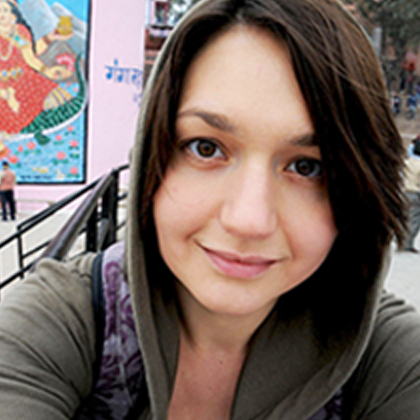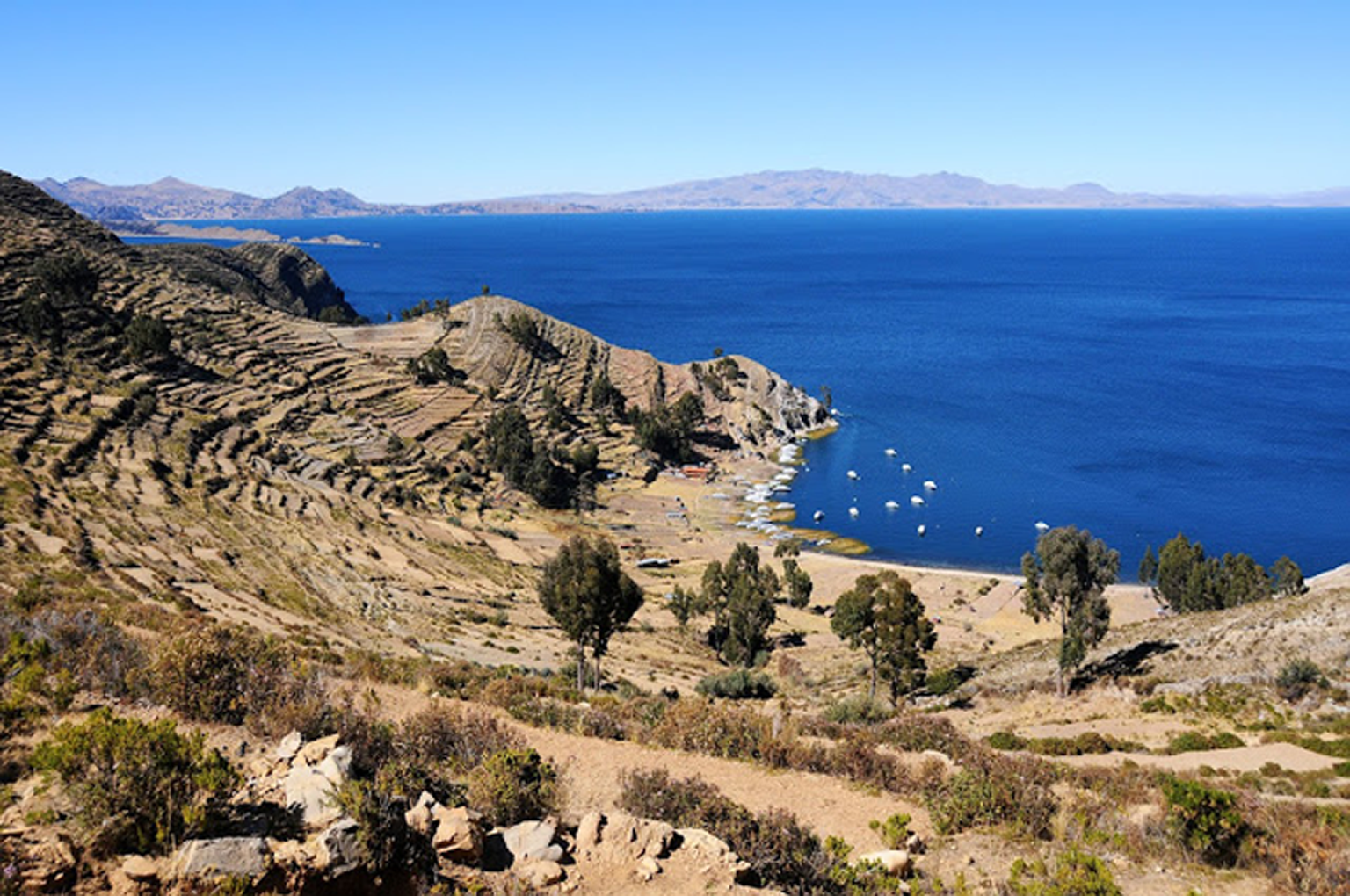- Posted by:
- anjci
- Under:
- Eurovision
As I ran towards the North Greenwich Tube station, the familiar chords of Pink Floyd’s immortal The Wall seemed to be tracing my every step.
Behind me at O2 Arena, Roger Waters was giving one of his exclusive London concerts – the event for which my tickets had been pre-booked almost a year ahead. After all, Pink Floyd’s music was the soundtrack to my childhood; seeing their founding member perform live at one of London’s largest venues was supposed to be a real treat.
And yet I was leaving early – leaving because something infinitely more important was awaiting me at home. Most of you will have guessed already. What else but the Eurovision Song Contest 2011?
Before anyone starts cringing in uncontrolled disdain, let me back up. I have been a devoted Eurovision fan since watching the Contest for the first time in 1997, and have seen every single Contest to date. Which numbers 14 years worth of Contests, or exactly one half of my eventful life. Doing something with near religious adherence for half of one’s life is no joke.
Besides – music quality aside – the Contest is unique in its highly entertaining political bias. No other show provides a better outlet for regional sympathies and tensions in Europe and beyond.
Which hopefully explains why Roger Waters lost a keen listener a bit early last Saturday night.
The 2011 Eurovision Song Contest was interesting in many ways. For a start, it was the first Contest Germany had hosted since its reunification and the third one held on the territory of present day Germany – the last one was held there in 1983. I wasn’t even born back then.
Secondly, 2011 marked a change of Eurovision’s Executive Supervisor. Famous for his classic words, “Europe has voted“, Sweden’s Svante Stockselius resigned from the role shortly after last year’s Contest after seven years of supervising Europe’s musical voting. He has been replaced by Jon Ola Sand – a Norwegian who may not be copying Svante’s trademark phrase but at least speaks with a similar accent.
Finally and most notably, this year’s Eurovision title was likely also the most contended one in history: the fate of the winning song was not clear until towards the very end of the voting. After several years of top participants leaving others trailing behind minutes into the voting, national result announcements this year kept the audience glued to the screens until the end.
The uneven split of votes is well evident in the varied allocation of the top score “douze-points”. If in the last couple of years the winning songs each received a maximum number of 12 points (Germany’s Satellite got nine in 2010; Norway’s Fairytale as many as 16 a year earlier), 2011 was not so clear cut. The highest number of maximum points (five in total) was awarded to Bosnia and Herzegovina which finished sixth. The second highest (four) went to Italy, ranking second. And the ultimate winner – Azerbaijan – only managed to score three 12-pointers, one of which – from an old ally, Turkey – it had as good as guaranteed anyway.
Azerbaijan’s victory may have surprised many and defied a few highly regarded prediction polls. Why were so many European nations suddenly dishing out mid-range votes to a former Soviet republic somewhere in the Caucasus? Other than for the song itself, Running Scared – indeed of laudable Eurovision quality – I humbly theorise that the extra votes for Azerbaijan came from the numerous Turkish diaspora in Europe. After Turkey’s Live It Up failed to, well, live up to expectations, European Turks’ second best option was to support their closest brother nation. Out comes Azerbaijan; you know the rest.
Money is not always King
In a desperate attempt to improve their once enviable Eurovision performance, the United Kingdom and Ireland both splashed out in order to promote their entries ahead of the Contest. The same formula seemed to have worked last year for Germany, which marched on to pan-European victory after staging a fancy multi-round TV casting show for its national selection.
Having taken care of the promotional side, Europe’s two English speaking nations sadly seem to have forgotten all about the actual quality of the songs. Ireland’s Lipstick performed by an energetic duet of identical twins, Jedward, was a far cry from the country’s previous Eurovision winners. The twins finished eighth – a disappointing result given that Ireland continues to hold the most Eurovision titles to date (a total of seven) but has failed to win the Contest since 1996.
As for the United Kingdom, its overhyped boy band Blue – freshly reunited for the occasion – narrowly undershot the Top 10, finishing 11th. I Can clearly couldn’t win support across the Channel; still, the United Kingdom finally seems to have broken out of the loop of systematic bottom-of-the-list Eurovision performances. It is only a shame that it had to work so hard to reach so little.
Ironically, 2011 marked the first year when Azerbaijan did not invest millions in promoting their song, proving that sheer quality and regional support continue to come ahead of zealous promotion.
Haven’t we seen them somewhere before?
Several countries returned to Eurovision in 2011 after skipping one or more years. Austria (last seen in 2007) and Hungary (in 2009) both trailed at the lower end of the rankings despite rather deserving entries; it might be that the former imperial allies need to start making new friends in Europe. Another returnee, San Marino (participating for the second time in history after 2008), barely collected a handful of points in Semi-final 1, making one wonder if, frankly, the micro state need to have bothered at all.
The comeback of the year, however, unanimously goes to Italy. Having last participated in 1997, Italy pledged to win the Contest upon its long-awaited return. And while it did not win, Raphael Gualazzi’s Madness of Love came a respectable second – hopefully boosting public awareness of Eurovision in Italy and most certainly saving face for the old core of Europe.
As every year, several countries also chose to recycle the previous years’ performers. Most obviously, Germany’s Lena won the Contest last year; her Bjork-esque Taken by a Stranger was however less successful in taking over Europe’s hearts in 2011, finishing 10th. Israel’s Dana International – a winner in 1998 – might still have looked a Diva but failed to make it past the Semi-finals. Hats off for Moldova, whose Zdob şi Zdub already represented the country in 2005 but had since added some interesting costume solutions to their performance.
Bosnia and Herzegovina clearly knew what they were doing by sending Dino Merlin as their Eurovision ambassador. Known to non-Balkan circles for having represented his country at Eurovision in 1999, the singer is a real veteran on the music scene of the former Yugoslavia. Not surprisingly, Bosnia and Herzegovina’s Love in Rewind scored a top number of 12-point awards (three from elsewhere in former Yugoslavia and two thanks to vast Balkan diaspora in Austria and Switzerland), which best visualises the recognition factor. Having said that, the song, too, was decent.
And the 12 points go to…
There were few surprises as far as voting was concerned. After all, isn’t the political bias exactly what we love Eurovision for? First came the so-called “sweet couples”: the countries gracefully exchanging 12-point handshakes in Semi-finals and Finals. Namely: Turkey and Azerbaijan (see above), Serbia and Croatia (secretly in love with each other), Romania and Moldova (isn’t that the same country, anyway?), Denmark and Sweden (Norway didn’t qualify), Slovenia and Bosnia and Herzegovina (Slovenia’s Maja clearly outscoring Serbia’s Nina on certain fronts), and, finally, Ireland and Denmark. The latter is the only one I personally fail to explain; is it that, God forbid, they actually liked each other’s music?
As expected, strong support came from the homesick diaspora. Lithuania’s “C’est ma vie” did remarkably well in the United Kingdom (receiving 12 points in Semi-final 1) and Ireland (12 points in the Finals) thanks, firstly, to thousands of Lithuanians continuing to sit out the Baltic crisis in those two countries, and secondly, to inheriting votes of the Latvian diaspora after Latvia failed to qualify.
For historic reasons dating back to the early 1990s, many descendants of the former Yugoslavia ended up in Austria and Switzerland; these two countries were responsible for awarding Bosnia and Herzegovina 12 points in the Finals. Similarly, Switzerland awarded 12 points to Serbia (Semi-final 1), Greece gave 10 points to Albania (Semi-final 1), and Italy ranked Romania its top choice (Semi-final 2). One does not need official demographic statistics when there is Eurovision!
Other trends
Following last year’s momentary comeback of national languages, it seems that English is yet again stepping forward as Europe’s ultimate lingua franca. Only nine of 43 songs were performed entirely in the respective country’s language (assuming, of course, that Corsican qualifies as such for France and that Gaelic remains off the table for Ireland), of which only five participated in the Finals. A further nine were bilingual, meaning that as many as 25 songs were in English. The highest ranking song in the national language – Serbia’s Čaroban – scored 14th. Indeed a sad trend given the richness of European linguistic heritage.
Going on to the announcement of national results, I noticed a couple of familiar faces among spokespersons. Ukraine’s Ruslana and Russia’s Dima Bilan won the Contest for their countries in 2004 and 2008, respectively. Past winners aside, most other nations turned the announcement into an undercover beauty show – which added a fresh element to the admittedly over-stretched result announcements.
Final entertainment of the night was reserved for Latvia. Caught in a classic situation facing our ailing Vaterland – namely, being given a say when everything has been determined already without us – Latvia’s Aisha played it well. Indeed, her enthusiasm and impromptu live performance of the Italian entry were a welcome change from a series of staple “my-country-speaks-better-German-than-yours” attempts and mandatory compliments on the presenters’ appearance. Stefan Raab looking “marvellous”? Give me a break.
Having said all of the above, I did not for one minute regret sacrificing the last few minutes of Roger Waters’s performance to Eurovision. The Wall has fallen; Europe is one! Even if we still like our next door neighbour’s song better than yours.
Congratulations to Azerbaijan and see you all in Baku in 2012!
~~~~
Read my accounts of Eurovision 2009 and Eurovision 2010
Eurovision logo: http://www.eurovision.tv/












Comments